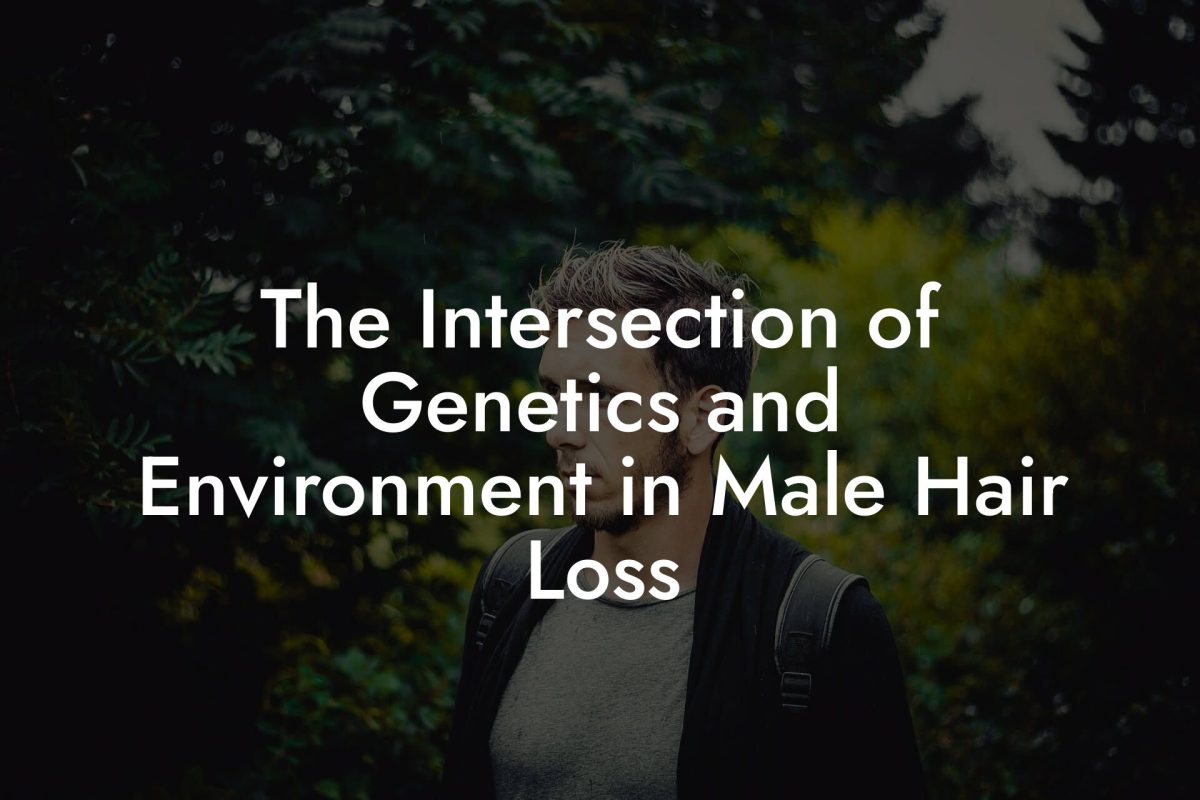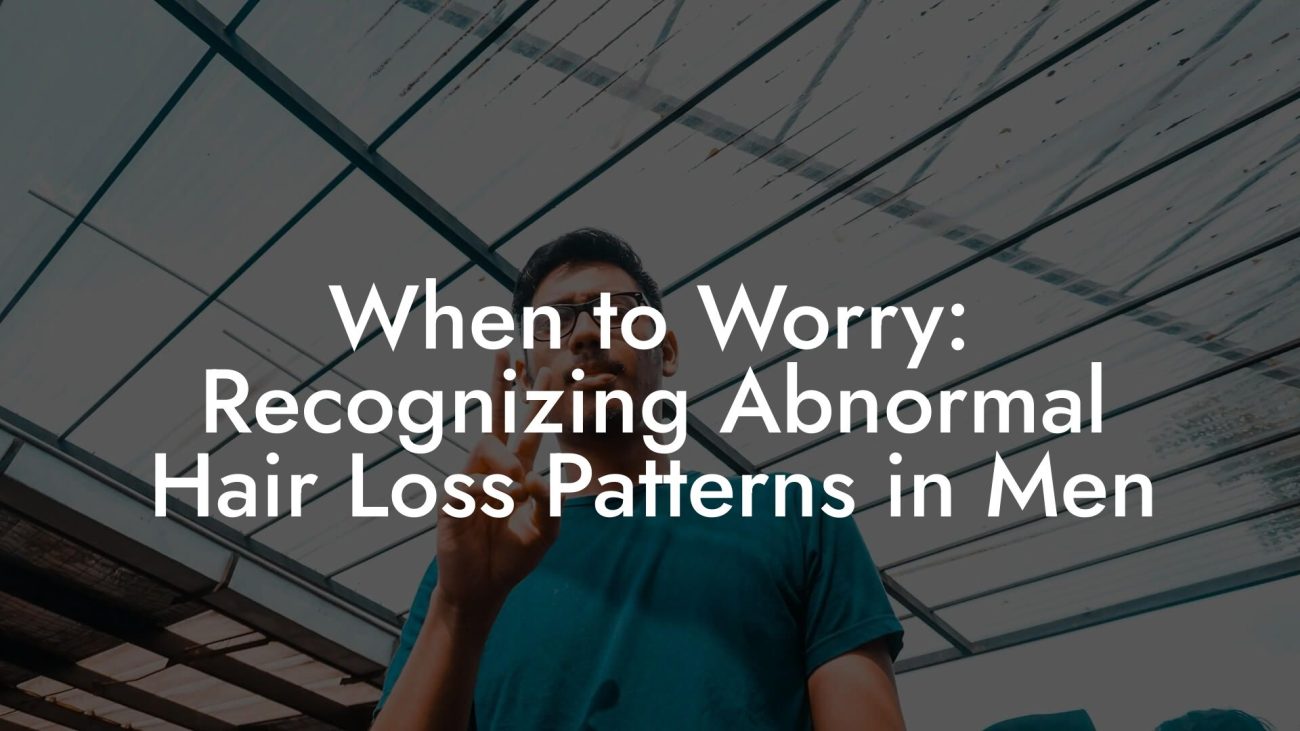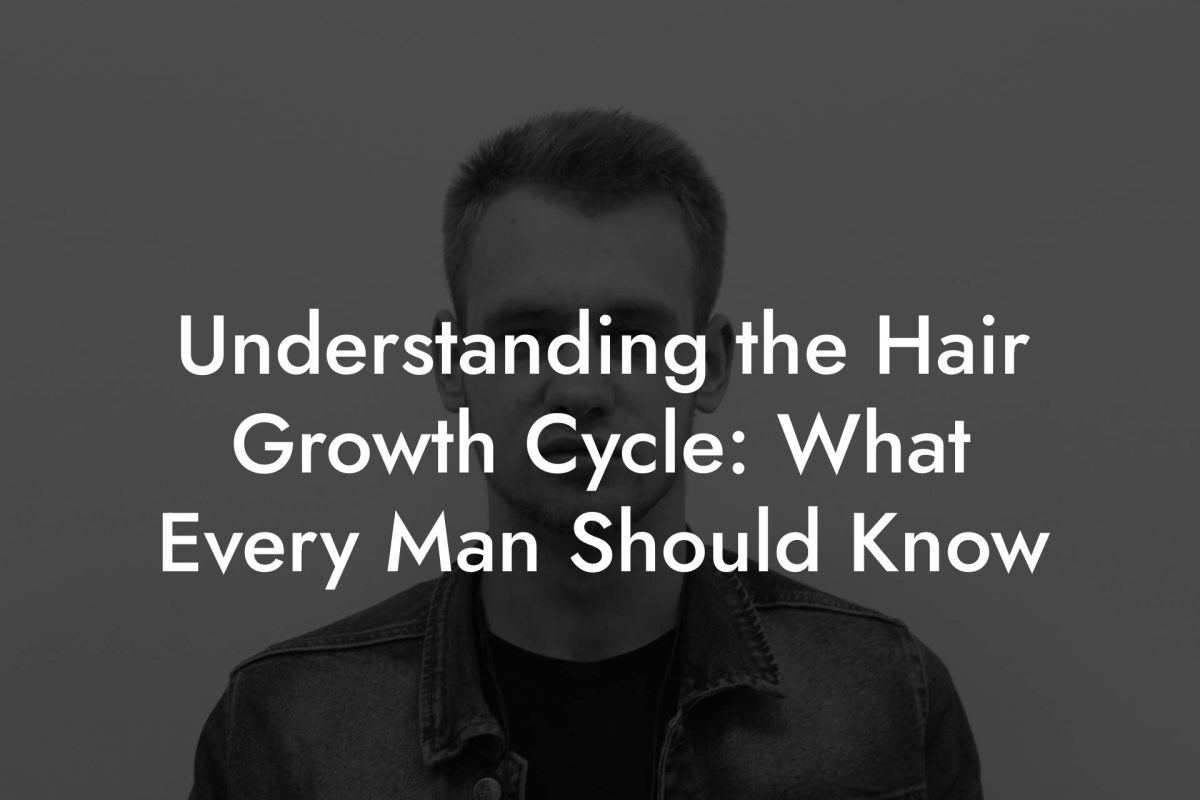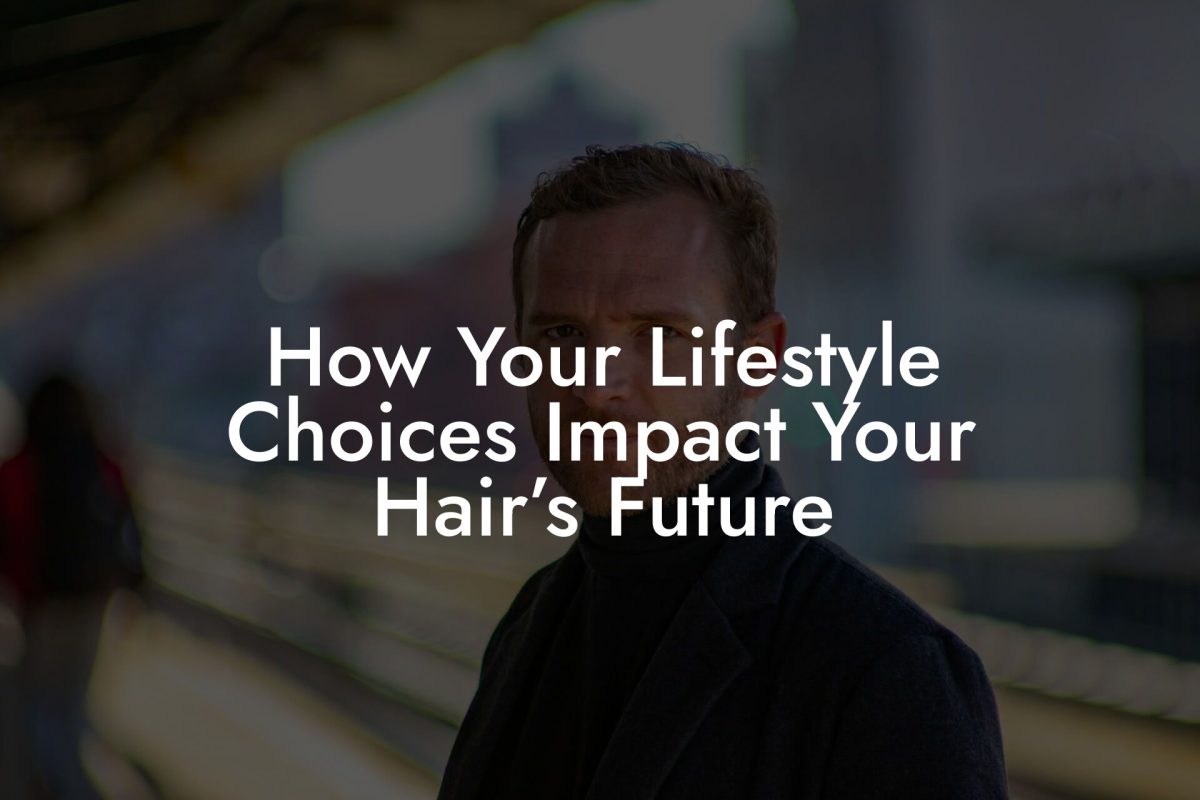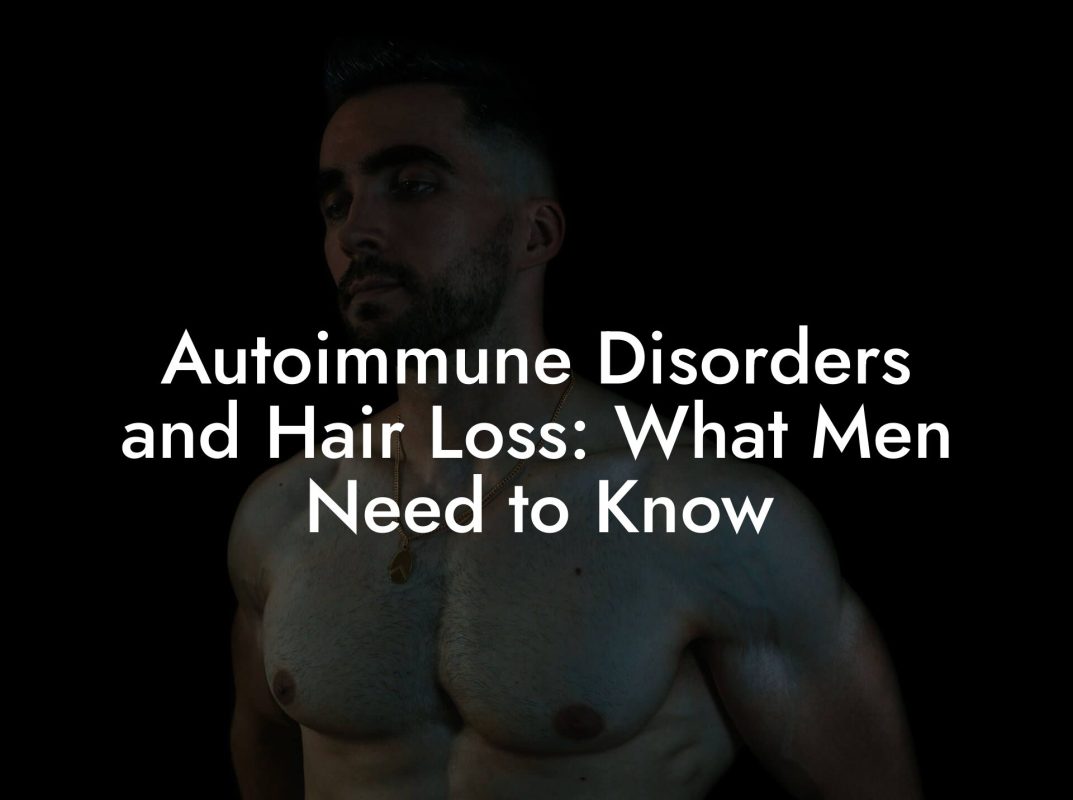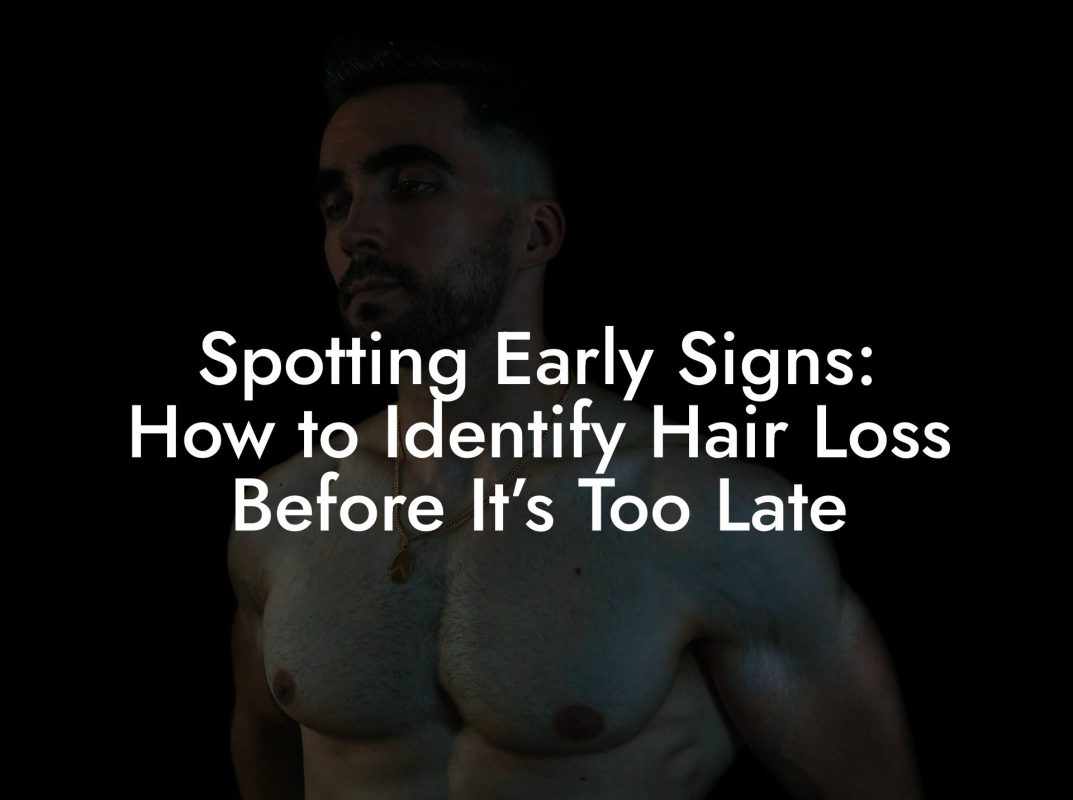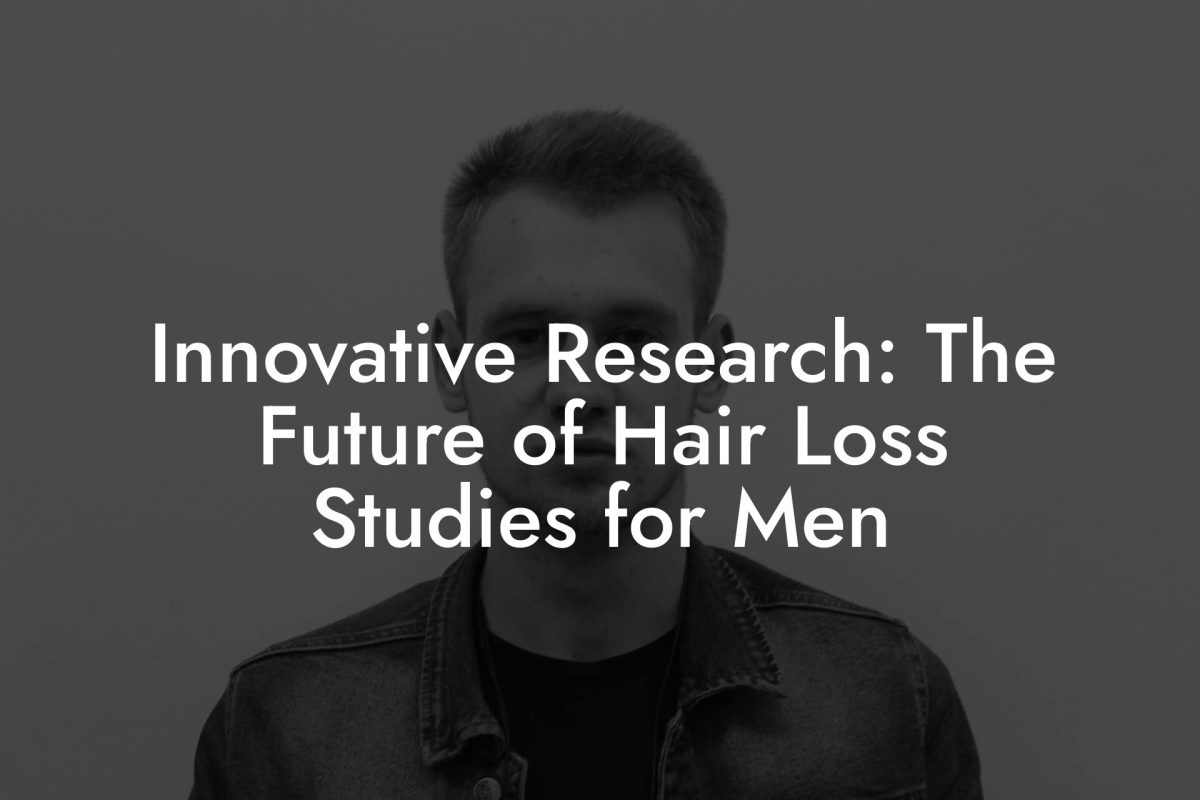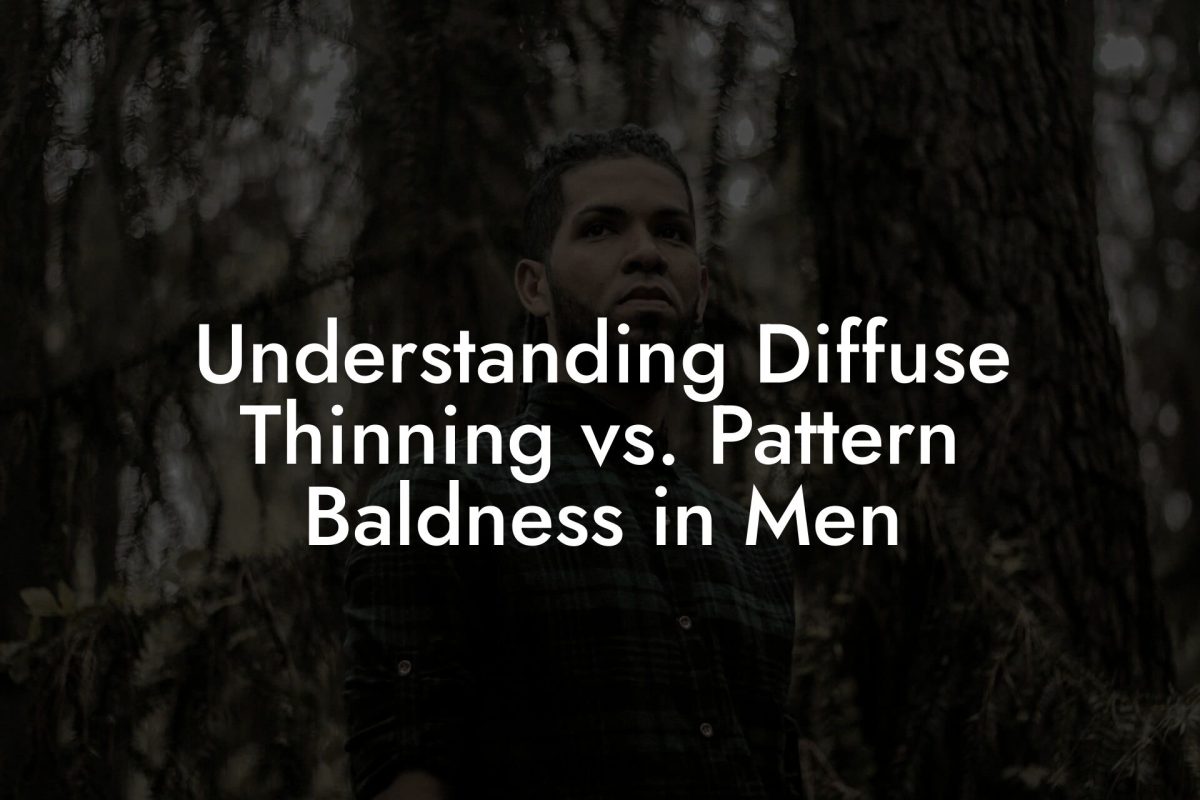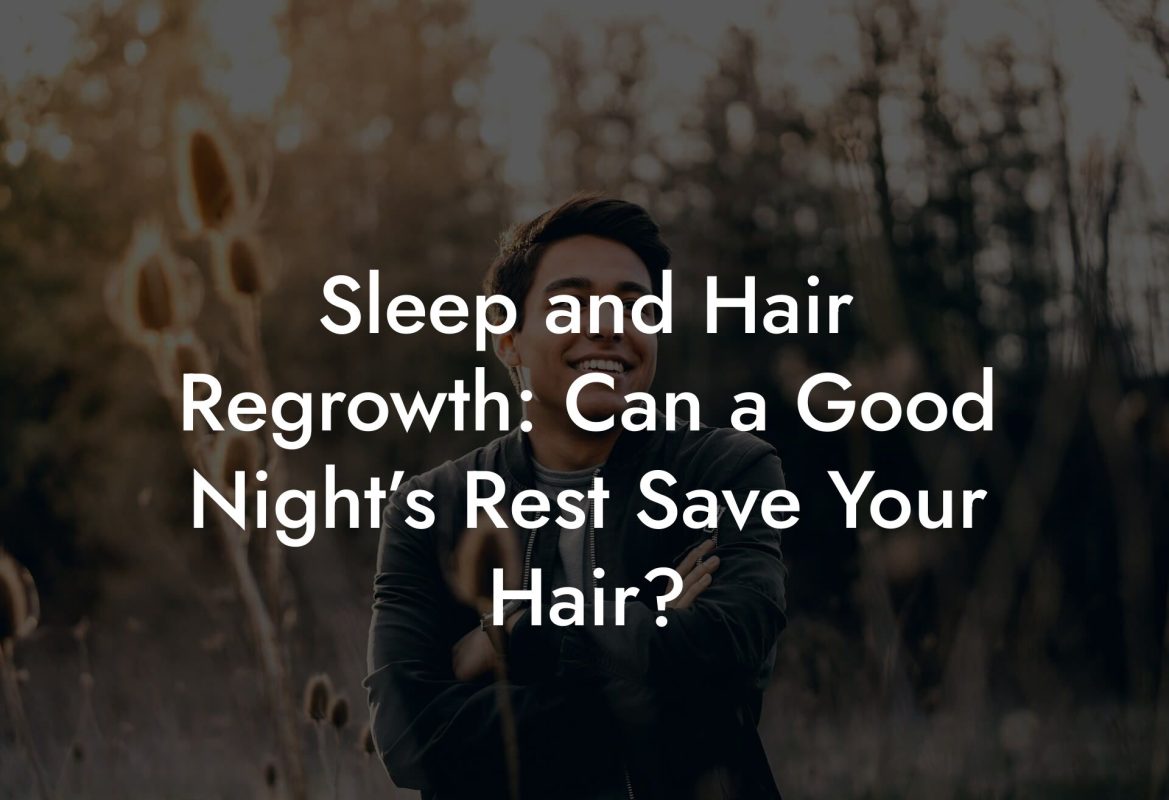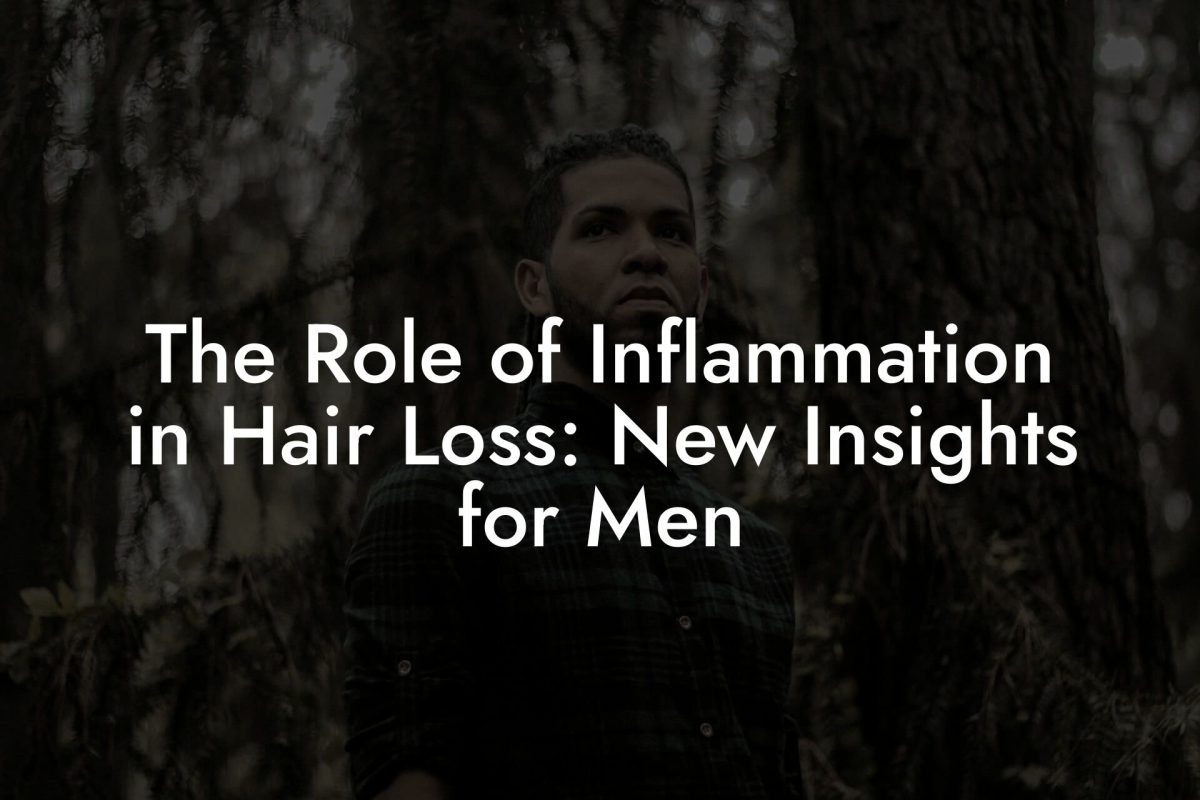Hair Loss Library
Medical Conditions and Hair Loss: What’s Normal and What’s Not?

Ever wonder why your hairline seems to vanish faster than your favorite internet meme? Welcome to the no-nonsense world of men’s hair loss, where we break down what’s perfectly normal and what might signal an underlying medical twist to your follicle story. Here at Mane Matrix, we believe in demystifying hair loss with a mix of expert insight, a dash of humor, and seriously relatable language that doesn’t make you feel like you’re back in that awkward high school health class.
Understanding the Landscape: What's Normal and What's Not?
Let’s be real—losing a bit of hair isn’t the end of the world. In fact, it’s a totally normal part of life. But when does your shedding stray from the “normal” territory and tip into a medical mystery? Think of it like pizza toppings: some hair loss is as accepted as pepperoni, but too much may be a sign that something extra is going on—something that might need a closer look by an expert.
Normal hair loss is usually a part of your day-to-day routine. We all drop a few strands in the shower or see them on our pillow in the morning. However, when the loss escalates to clumps or becomes an unexpected guest on your sofa (or worse, your clothes), it might be time to start paying closer attention. With a mix of genetics, aging, and environmental factors, some thinning is par for the course, but medical conditions and underlying health issues can turbocharge the process.
In this guide, we’re going to dive deep into the medical conditions behind hair loss, helping you distinguish between what’s benign and what might be a red flag. Buckle up, because we’re about to put the “mane” back in maintenance!
Hair Today, Gone Tomorrow: Medical Conditions That Impact Hair Loss
Men’s hair loss isn’t just about genetics or your overzealous barber’s new fade trends. There’s a whole assortment of medical conditions that can contribute to your hair’s disappearing act. Understanding these factors helps you know when to shrug it off as normal hair shedding or when you need to consider professional consultation.
Let’s break these conditions down:
- Alopecia Areata: This autoimmune condition is like a rebellious teenager that decides to cancel a hair appointment. The immune system mistakenly attacks hair follicles, leading to patchy hair loss that can appear suddenly without warning.
- Androgenetic Alopecia: Often referred to as male pattern baldness, this is the most common cause of hair loss in men. It’s typically inherited and driven by hormone levels, making its presence as inevitable as that 90s boy band hit you secretly love.
- Thyroid Disorders: Both hypothyroidism and hyperthyroidism can wreak havoc on your hair. When your thyroid is out of whack, your metabolism shifts, and your hair might follow suit—falling out more than you’d like.
- Nutritional Deficiencies: If your diet is more fast-food drive-thru than kale and quinoa, don’t be too surprised if your hair starts dropping off. Deficiencies in iron, vitamin D, or protein can set the stage for increased hair loss.
- Medications: Certain prescriptions, from acne treatments to heart medications, have hair thinning as a side effect. Sometimes, your doctor’s attempt to keep you in prime health might come with a sneaky side effect you weren’t expecting.
- Scalp Infections and Dermatological Issues: Conditions like fungal infections or psoriasis can cause inflammation and disrupt the hair growth cycle. In these cases, the problem is often localized but can be frustrating nonetheless.
- Stress and Mental Health: Yes, the modern-day hustle can take its toll. Chronic stress and anxiety can lead to a temporary condition known as telogen effluvium, where your hair shifts into a resting phase and falls out in larger-than-normal amounts.
Each of these conditions is unique, but they all underline the fact that hair loss is often a symptom—a visible telltale of what’s happening inside your body.
Spotting the Signs: When Hair Loss May Be More Than Meets the Eye
Let’s put it in plain terms: hair loss can be as subtle as a whisper or as dramatic as a rock concert. So how do you know when your follicular friend is saying “I’m out” because of a natural cycle versus a sign of something clinically concerning? Here are a few indicators:
- Sudden, Drastic Thinning: If your hair loss accelerates unexpectedly over a few weeks or even days, it might be more than just seasonal shedding.
- Patchy Loss: Spotting bald patches could point to autoimmune conditions such as alopecia areata.
- Itchiness or Scalp Irritation: Unexplained redness, scaling, or persistent itching could signal an underlying infection or dermatological issue.
- Changes in Nail or Skin Condition: Sometimes hair loss does not come alone. Changes to your skin or nails might indicate hormonal imbalances or autoimmune disorders.
- Family History Plus Early Onset: If early hair loss runs in your family, you might be destined for a similar pattern—but that doesn’t mean you can’t take proactive measures.
Knowing these signs can help you decide if it’s just your locks following the natural order of things or if it’s time to dive deeper into your overall health.
The Role of Lifestyle and Nutrition in Hair Health
Beyond medical conditions, your lifestyle and the food you chow down on every day play a massive role in keeping your hair in tip-top shape. Think of your body as a high-performance machine—without the right fuel and maintenance, even the best parts can start to falter.
Fueling Your Follicles
A nutrient-rich diet is like premium gasoline for your hair follicles. Incorporate plenty of lean proteins, healthy fats, and antioxidants by indulging in a colorful array of fruits and veggies. Foods rich in iron, vitamin D, and omega-3 fatty acids aren’t just good for your heart; they’re the secret sauce behind luscious locks.
Some performance tips:
- Spinach: Loaded with iron and vitamins, spinach supports healthy blood flow to your scalp.
- Salmon: Rich in omega-3s, salmon helps reduce inflammation and promotes strong, shiny hair.
- Eggs: A protein powerhouse that fuels the building blocks of keratin, the protein your hair is made of.
- Berries: Packed with antioxidants, they combat the free radicals that can damage hair follicles.
And don’t forget to hydrate! Water is essential for maintaining the elasticity and health of your hair tissues—so keep that water bottle handy.
Exercise and Stress Management
Modern life can be a stress-fest, and chronic stress can push your body into overdrive, triggering hormonal imbalances that lead to hair shedding. Incorporate regular exercise, not only for your heart and muscles but for the added bonus of stress relief. Whether it’s hitting the gym, going for a run, or practicing yoga, staying active can help maintain a healthy balance in your hormones.
Moreover, techniques like meditation, deep breathing, and even a hobby that takes your mind off the daily grind are vital in keeping stress levels under control. Remember, a relaxed mind leads to a healthier body—and that includes your hair.
Medical Interventions and Treatments: Navigating the Options
When lifestyle tweaks aren’t enough to keep your mane on point, there are a variety of medical treatments available to help combat hair loss. Depending on the underlying cause, your doctor might suggest one or more of the following:
- Medication: Options like finasteride and minoxidil have become household names (or should we say, headliners?) in the battle against hair loss. These treatments work by slowing the loss and promoting regrowth, though results can vary from one person to another.
- Platelet-Rich Plasma (PRP) Therapy: Think of this as using your own body’s healing power. With PRP, a small blood sample is processed to concentrate growth factors, then injected into your scalp to kickstart hair growth.
- Low-Level Laser Therapy (LLLT): This non-invasive treatment uses lasers to stimulate hair follicles, increasing blood flow and encouraging regrowth. It’s like giving your scalp a gentle wake-up call.
- Surgical Options: For those facing advanced hair loss, procedures like hair transplants can redistribute your existing hair for a fuller look. Although it’s a more invasive option, many men find it to be a game changer.
Each treatment has its own set of pros and cons, and what works for one guy might not be your cup of herbal tea. The key is to have an honest conversation with your healthcare provider about your specific condition, lifestyle, and expectations.
A fun fact: some of these therapies have more in common with modern science fiction than with traditional medicine. For instance, PRP therapy feels as if you’re taping into your own superhero serum—only it’s your blood powering your transformation!
When to Seek Professional Guidance and When You Can DIY
Here’s the deal: while a little DIY research and lifestyle adjustments can definitely help, there comes a point when professional guidance is the smart call. Not every hair loss is created equal, and understanding when to consult an expert is essential in preventing further complications.
Consider seeking professional advice if:
- You notice rapid or significant hair loss that doesn’t seem to stabilize.
- Patchy, uneven hair loss or scalp irritation appears alongside your shedding.
- You have a family history of medical conditions like thyroid issues or autoimmune diseases that might be linked to hair loss.
- Over-the-counter treatments and lifestyle changes haven’t produced the results you were hoping for.
On the flip side, if you’re experiencing the typical hair fall that happens every day, simple lifestyle adjustments may be all you need. Establishing a healthy diet, managing stress, and a consistent hair care routine are great places to start.
And remember, asking for professional advice is not a sign of defeat—it’s a proactive move to reclaim your confidence and refocus on the aspects of your health that matter most.
The Intersection of Genetics, Hormones, and Hair: What Science Tells Us
Genetics plays a significant role in how your hair behaves, and it’s not just about inheriting a family pattern that leads to receding hairlines. Hormones, particularly dihydrotestosterone (DHT), are key players in male pattern baldness. DHT binds to hair follicles and shrinks them, shortening their lifespan and slowing the growth cycle.
For the tech-savvy and scientifically curious among us, imagine your hair follicles as tiny factories. When DHT comes knocking, it’s like a micromanaging boss who decides to cut the production line short. Over time, these follicles produce thinner and shorter hair strands, eventually leading to noticeable thinning.
It’s worth noting that while there’s no magical way to completely stop the influence of genetics, several treatments can help mitigate the impact. Understanding your genetic predisposition can empower you to take early action—whether that’s through targeted treatments or lifestyle modifications that maintain hormonal balance.
Science continues to unravel the mysteries of hair biology, yet the age-old truth remains: your hair is a reflection of your overall health. Embracing both modern science and time-tested lifestyle changes can create a holistic strategy that helps preserve your crown.
Debunking Hair Loss Myths: Separating Fact From Fiction
The internet is overflowing with myths and misconceptions about hair loss. From the magical promises of miracle shampoos to conspiracy theories about secret government formulas, it’s sometimes hard to tell what’s legit. Let’s set the record straight on some of the most common myths:
- Myth #1: Wearing hats causes hair loss. Your favorite beanie might be stylish, but rest assured, wearing one isn’t going to zap your hair away. Hair loss is rarely, if ever, caused by hats.
- Myth #2: Stress is the only cause of hair loss. While stress can definitely contribute to conditions like telogen effluvium, it’s usually only one part of a bigger picture. Genetics, hormones, and other medical conditions often play a larger role.
- Myth #3: Hair loss treatments work overnight. If you’re expecting next-day miracles, you might be in for a letdown. Most effective treatments take time—consistency is key.
- Myth #4: Only older men experience hair loss. Hair loss can begin as early as your 20s or 30s. Genetics and hormonal factors don’t wait for a birthday celebration to show results.
By debunking these myths, you can focus on what’s truly important—understanding your unique situation and taking informed steps towards better hair health.
Integrating Expert Analysis: What Mane Matrix Has to Say
At Mane Matrix, we get that hair isn’t just about aesthetics—it’s a confidence booster, a part of your identity, and sometimes, a canary in the coal mine of your overall health. Our approach is all about blending cutting-edge research with practical insights tailored for today’s busy, digitally-savvy men.
We provide detailed analyses that peer into the potential medical roots of your hair loss, offering insights that span from tried-and-true treatments to emerging trends like low-level laser therapy and PRP. We’re not here to push expensive consultations or trendy gimmicks; instead, we deliver expert advice in a refreshingly relatable way.
Our goal is to empower you with information, allowing you to confidently navigate through the maze of treatments and lifestyle tips. Whether you’re a seasoned researcher or just starting to notice that thinner patch on your crown, our analysis is designed with you in mind.
Remember, understanding the cause is as crucial as finding the right solution. With expert analysis, you can strategize effectively, manage your expectations, and potentially slow down or reverse unwanted hair loss.
Healthy Hair, Healthy You: Nutrition and Lifestyle Strategies
Think of your hair as a high-profile influencer—it thrives on attention, care, and the right nutrient-packed diet. Beyond generic hair care products, what you ingest plays a critical role in maintaining healthy, strong hair.
Eat for Your Follicles
Just like your phone needs regular updates to perform at its best, your body requires a steady stream of vitamins and minerals to keep your hair in the game. Incorporate plenty of protein-rich foods, omega-3 fatty acids, and antioxidants into your diet. A plate full of lean meats, fish, legumes, and green vegetables isn’t just good for your waistline—it’s a boost for your hair follicles.
On top of that, consider supplements carefully if your diet is lacking. Iron, biotin, vitamin D, and zinc are among the most important nutrients known to support hair strength and growth.
The Power of a Well-Balanced Lifestyle
In today’s hustle culture, stress can significantly impact your health, including your hair. Incorporate regular breaks, exercise, and mindfulness practices into your daily routine. Whether it’s hitting the gym, going for a brisk walk, or even laughing at memes on social media, reducing stress is a must.
When your body feels balanced, your hair does too. A well-rested, properly nourished system can go a long way in keeping those locks – or even a bold new style – looking their best.
Resources and Community Support: Your Next Steps
You’re not in this hair chase alone. Plenty of resources and supportive communities are available to help guide you on your journey to informed hair health. From online forums where you can swap stories about your shaving mishaps and miracle regrowth products, to professional networks and specialists who provide personalized insights—there’s a community out there that’s got your back (and your scalp).
Consider joining groups dedicated to men’s health and hair loss management. These communities can offer firsthand experiences, product reviews, and the latest news on innovative treatments. Social media platforms, blogs, and YouTube channels often feature interviews with dermatologists, trichologists, and hair coaches who break down complicated topics into bite-sized, engaging pieces.
Additionally, many health professionals offer virtual consultations, making expert guidance accessible without the awkward waiting room moments. Educate yourself, ask questions, and share your progress—this collective wisdom can empower you to make the best decisions for your hair and overall well-being.
Remember: taking control of your hair health is not just about stopping the loss, but also about celebrating the journey towards a confident and informed you.
Frequently Asked Questions About Medical Conditions and Hair Loss
We know you’ve got questions, so we’ve compiled some of the most common ones we hear about men’s hair loss and its potential medical causes. Check out the FAQs below for quick answers:
1. Is it normal to lose hair every day?
Yes, it’s absolutely normal to lose a few hairs daily as part of the natural hair growth cycle. If you notice a sudden increase or large clumps shedding, it might be time to look into it further.
2. What medical conditions can cause hair loss?
Conditions like alopecia areata, thyroid disorders, nutritional deficiencies, and certain skin conditions can lead to hair loss. Additionally, medications and chronic stress might also contribute.
3. How do hormones affect hair loss in men?
Hormones, especially dihydrotestosterone (DHT), can shrink hair follicles over time—a key factor in male pattern baldness.
4. Can diet really impact my hair health?
Absolutely. A diet rich in proteins, vitamins, and minerals is essential for maintaining healthy hair growth. Poor nutrition can accelerate hair loss.
5. What treatments are available for men’s hair loss?
Treatments range from topical solutions like minoxidil to oral medications like finasteride, PRP therapy, and even hair transplants for advanced cases.
6. When should I consult a doctor about my hair loss?
If you notice rapid, patchy, or unusually severe hair loss, or if it’s accompanied by other symptoms such as scalp irritation, it’s wise to consult with a healthcare provider.
7. Are hair loss products effective without professional guidance?
Over-the-counter products can help with minor hair shedding, but for persistent or severe issues, professional consultation ensures that treatments are tailored to your specific condition.
8. Does stress really trigger significant hair loss?
Yes, chronic stress can lead to conditions like telogen effluvium, where more hair than usual enters the shedding phase of the growth cycle.
9. How long does it take to see improvements with treatments?
Treatments for hair loss typically take several months before noticeable improvements emerge, so patience and consistency are key.
10. Can lifestyle changes prevent hair loss altogether?
While lifestyle changes can significantly improve hair health and slow down hair loss, they may not completely prevent hair loss, especially if genetic factors are at play.
Your Journey to Confident, Informed Hair Health
Embracing the journey toward understanding and managing hair loss is all about reclaiming your confidence and taking charge of your overall well-being. Every strand of hair tells a story—one that’s intertwined with your genetics, lifestyle, and health. As you sift through the myriad of information and options, remember that you’re not alone. Thousands of men are navigating this path, and each step taken, no matter how small, is a victory in the fight against unwanted shedding.
Whether you’re just starting to notice a receding hairline or you’re dealing with more advanced thinning, an informed approach is your best ally. By understanding the medical conditions behind hair loss and adopting proactive strategies, you can tailor a plan that works specifically for you. From nutritional tweaks to innovative treatments, every effort you invest in your hair health is an investment in the confident, unstoppable man you are.
Remember, progress isn’t always linear. There will be ups and downs, but knowledge and persistence pave the way for long-term improvement. With expert guidance, community support, and a healthy lifestyle, you’re well-equipped to tackle hair loss head-on.
This journey is as much about self-discovery as it is about regaining control over your hair’s destiny. Celebrate each win, learn from every setback, and know that you have a wealth of resources at your fingertips. Your scalp, your story, your rules.
Step forward with confidence, stay informed, and watch as every informed decision transforms not only your hair health but your overall quality of life. The road to a fuller, healthier mane is paved with determination, resilience, and the willingness to embrace both modern science and time-tested wisdom. Your journey starts now—stay curious, stay proactive, and above all, stay confident.
If you loved this article... Dive deeper into the world of mens hair loss with our most popular sections. If there is anything you think is missing or anything you would love for us to write about, just give us a shout.
Why Am I Losing Hair? Unpacking the Science Behind Men’s Hair Loss
The Ultimate Guide to Male Pattern Baldness: Causes and Clues
Hormones & Hair: How Testosterone Impacts Hair Loss in Men
Genetics vs. Lifestyle: What’s Really Causing Your Hair Loss?
Stress and Strands: Exploring the Link Between Anxiety and Hair Loss
Decoding Androgenetic Alopecia: What Every Man Needs to Know
How Aging Affects Your Hair: Understanding the Natural Process
The Role of Diet in Hair Health: Nutrients That Prevent Hair Loss
Environmental Factors: How Pollution and Toxins Trigger Hair Loss
Medical Conditions and Hair Loss: What’s Normal and What’s Not?
The Impact of Medications on Men’s Hair: What You Should Ask Your Doctor
Unraveling Scalp Health: Signs Your Scalp Needs Extra Care
Hair Loss Myths Busted: Separating Fact from Fiction
The Role of Inflammation in Hair Loss: New Insights for Men
Sleep and Hair Regrowth: Can a Good Night’s Rest Save Your Hair?
How Smoking and Alcohol Affect Men’s Hair: A Deep Dive
Understanding Diffuse Thinning vs. Pattern Baldness in Men
Innovative Research: The Future of Hair Loss Studies for Men
Spotting Early Signs: How to Identify Hair Loss Before It’s Too Late
Autoimmune Disorders and Hair Loss: What Men Need to Know
The Science Behind Hair Follicle Miniaturization Explained
How Your Lifestyle Choices Impact Your Hair’s Future
Understanding the Hair Growth Cycle: What Every Man Should Know
When to Worry: Recognizing Abnormal Hair Loss Patterns in Men
The Intersection of Genetics and Environment in Male Hair Loss





